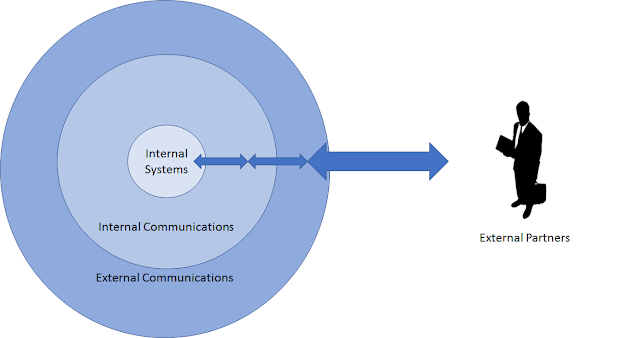IBM AppConnect Enterprise (IIB) as an API Micro-Gateway
One of IBM's best-known secrets is that they have two solutions that can
act as API Management microgateways. This is a short post to highlight the
various ways that you can expose APIs using IBM products and, in particular,
the App Connect Enterprise (formerly IIB) Microgateway functionality.
It's Complicated
As is often the case with IBM, there's no
one-size-fits-all solution, and API Management is no different. IBM have a
number of products that can expose APIs. In this post I'll concentrate on the
ones that I know are more integrated with the IBM API Connect product.
DataPower Gateway
DataPower is the IBM best-of-breed security gateway. As I've mentioned
in previous posts, API Management tools are built on ESBs and DataPower has all
the capabilities of an ESB: routing, logging, data augmentation, and mapping. The
difference is that DataPower is designed to run in the DMZ and security is its
watchword. In actuality, DataPower usually straddles the trusted and untrusted
zones.
When IBM started to use DataPower as their main API Gateway, it was
meant to host the APIs that were acting as the guardians to your estate. As
with all security gateways, they should be running the smallest integrations as
possible. The heavy-lifting should be done by the backend services (APIs or
otherwise). Therefore, it's expected that most of the APIs that are running in
the DataPower Gateway will be thin proxies to other "internal"
services.
|
|
|
DataPower Securing Back-end Resources
|
StrongLoop
IBM acquired StrongLoop in late 2015. StrongLoop is a suite of API tools
mainly focused on acting as an API microgateway. IBM bought them because
DataPower is not well-designed to be a microgateway. StrongLoop, on the other hand,
is designed to build APIs from the ground-up.
StrongLoop comes with a number of adapters that allow the API developer
to expose backend assets as APIs. StrongLoop gave IBM a strong story for the
creation of internal APIs as well as for securing the APIs for external use
(using DataPower).
App Connect Enterprise as a Micro Gateway
With this story in place, it's very easy to overlook IBM's ace in the
hole – App Connect Enterprise (formerly known as IIB, IBM Information Broker,
etc.).
App Connect Enterprise has the ability to create APIs. This is accomplished
using a slightly different path in the developer tools than the usual flow designer--but
it's not hard to find. This API Developer tooling generates the integration
flow that is then deployed to the App Connect run-time. That, in itself, does
not make for API "management." Rather, it’s just creating an HTTP
front end with a REST interface.
In order to then expose this API using API Connect; App Connect Enterprise
has been integrated with API Connect to provide a simple deployment experience.
The App Connect developer just connects APP Connect to API Connect and
pushes the APP Connect configuration into API Connect. (as shown in the above
picture)
This simple operation creates an API Proxy within API Connect which can
be managed in the normal manner as an API Connect API. This provides key
management, throttling, and more at the enterprise edge.
Microservices
As always, the App Connect team are doing an excellent job of keeping
on-trend. In this case, they’re making sure that the App Connect runtime
engines are microservices enabled. This means that you can deploy your App Connect
API microgateways as microservice containers for flexibility and scalability.
Conclusion
If you already have App Connect (aka IIB) and you need a microgateway, the
good news is that you already have one.
With the integration between IBM App Connect Enterprise and the IBM main
API Manager platform, API Connect, you can expose App Connect APIs at the edge
of your enterprise. In addition, IBM have enabled App Connect to work well in a
microservices and containerised environment.
Here's a link to a tutorial: https://developer.ibm.com/integration/blog/2016/07/06/ibm-api-connect-and-ibm-integration-bus-tutorial/




Comments
Post a Comment